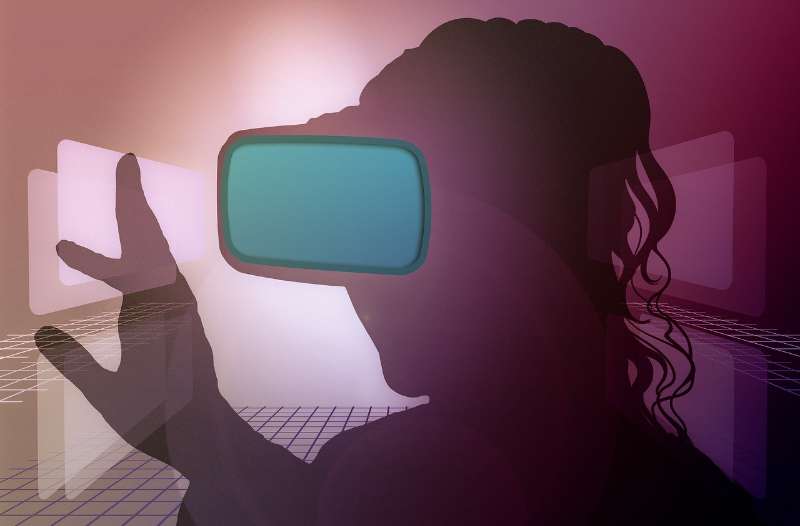Thought Piece | Thought Piece
Why it’s time to future-proof your business with MACH technology
by Liam Springate-Jones

Over the past few years, the metaverse has captured the attention of both consumers and marketers, with many brands already creating virtual worlds and strategies to take advantage of this new ecosystem. However, a fully interconnected metaverse remains some time away. Despite this, there’s still huge potential for the metaverse to add real business value for a variety of brands.
With its integration of the digital and physical worlds, the metaverse could be a revolution for the automotive sector and transportation more broadly. Why? Because automotive retailers will have the opportunity to offer virtual test drives to buyers, instead of going directly to the dealership. In addition, car manufacturers will have the opportunity to build virtual prototypes and transport designs, significantly reducing cost and risk, as well as creating new concepts of cars that could be used in the future.
Automotive company Nissan has filed four trademarks, offering virtual test drives to strengthen its footing in the metaverse. There’s a demand for mobility in the metaverse and below we examine its value, and how new technologies and innovations can help bolster the mobility sector and improve customer experience.
Many of today’s consumers research vehicles online before buying, with shoppers visiting multiple websites and undertaking comparisons to inform decisions. According to research, 92% of car buyers research online before making a purchase and the watch time of “test drive videos” has increased by more than 65%. This signals a future in which the car-buying journey will be dominated by an array of digital touchpoints. At Splendid, we’ve worked with BMW to create an engaging showroom across various websites, so we understand the importance of digital experiences. The project involved building a seamless connection between the consumer and retailer through a coherent digital content experience. Our work with BMW resulted in a 47% increase in test drive bookings.
Virtual reality represents the next step in digital experiences. VR technologies have the power to extend the car buying experience and give customers access to thousands of vehicles and allow them to walk through the dealership. In 2022, Acura launched a campaign in the 3D world Decentraland which featured a virtual showroom, allowing customers to browse through its selection of cars. The value of virtual showrooms lies in providing customers with an interactive experience that allows brands to build engaging digital communities to drive further revenue.
As the metaverse becomes more widespread, companies could use digital twins to test innovations in preparation for the real world. The metaverse could eventually serve as a testing ground for transportation to help enhance real-life interactions and take customers and their experiences to a whole new level.
With emerging technologies and increasing urbanisation, the metaverse has the potential to reshape transportation. The concept is known as ‘metamobility’, which is Hyundai’s vision of using mixed technologies to allow people to move freely between the physical world and virtual reality, in which space, time and distance become irrelevant. Metamobility has the potential to create unique customer experiences as it’s much more complex and sophisticated than traditional CX. The idea is that it further enhances the connection between digital and physical realities, which can be a powerful strategy that brands can use to engage customers at different stages of the buyer’s journey.
The metaverse will drive new aspects of personalisation and create opportunities for users to customise their vehicles in virtual showrooms, as well as engage with others in a simulated environment. Metaverse personalisation gives brands the chance to create a more immersive experience for car buyers that serves as an extension of the in-store environment.
As technology advances, the metaverse could also pave the way for more advanced entertainment options for vehicles, such as metaverse-related applications that can assist drivers in the physical world. In recent years, Swiss tech company WayRay unveiled the world’s first car that’s built around “Real Augmented Reality”, as it features holographic displays and a roof-mounted projector system.
The metaverse has the power to provide significant value to the customer experience, which includes physically driving a car. WayRay’s model signals a future of highly innovative driver systems that use AR, enabling better vehicle design and servicing.
There are a lot of opportunities for brands to experiment with the metaverse. It’s an always-on environment that facilitates brand growth. The metaverse will greatly influence the future of mobility and re-imagine the automotive sector. At Splendid, we have years of experience designing and developing quality digital projects for clients in a variety of sectors. Having worked with brands in the automotive industry, such as BMW, we understand the importance of strong and engaging digital experiences that connect with the right audiences.
Our workshops give new clients an introduction to the metaverse and showcase the possibilities of virtual reality marketing. If you’re ready to switch gears and find out more about our services to help move your brand forward, get in touch with our team today.